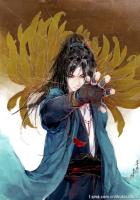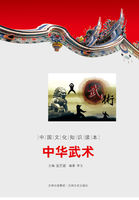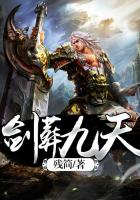1. The Soul as a Mannikin
THE FOREGOING examples have taught us that the office of a sacred king or priest is often hedged in by a series of burdensome restrictions or taboos, of which a principal purpose appears to be to preserve the life of the divine man for the good of his people. But if the object of the taboos is to save his life, the question arises, How is their observance supposed to effect this end? To understand this we must know the nature of the danger which threatens the king's life, and which it is the intention of these curious restrictions to guard against. We must, therefore, ask: What does early man understand by death? To what causes does he attribute it? And how does he think it may be guarded against?
As the savage commonly explains the processes of inanimate nature by supposing that they are produced by living beings working in or behind the phenomena, so he explains the phenomena of life itself. If an animal lives and moves, it can only be, he thinks, because there is a little animal inside which moves it: if a man lives and moves, it can only be because he has a little man or animal inside who moves him. The animal inside the animal, the man inside the man, is the soul. And as the activity of an animal or man is explained by the presence of the soul, so the repose of sleep or death is explained by its absence; sleep or trance being the temporary, death being the permanent absence of the soul. Hence if death be the permanent absence of the soul, the way to guard against it is either to prevent the soul from leaving the body, or, if it does depart, to ensure that it shall return. The precautions adopted by savages to secure one or other of these ends take the form of certain prohibitions or taboos, which are nothing but rules intended to ensure either the continued presence or the return of the soul. In short, they are life-preservers or life-guards. These general statements will now be illustrated by examples.
Addressing some Australian blacks, a European missionary said, I am not one, as you think, but two. Upon this they laughed. You may laugh as much as you like, continued the missionary, I tell you that I am two in one; this great body that you see is one; within that there is another little one which is not visible. The great body dies, and is buried, but the little body flies away when the great one dies. To this some of the blacks replied, Yes, yes.
We also are two, we also have a little body within the breast. On being asked where the little body went after death, some said it went behind the bush, others said it went into the sea, and some said they did not know. The Hurons thought that the soul had a head and body, arms and legs; in short, that it was a complete little model of the man himself. The Esquimaux believe that the soul exhibits the same shape as the body it belongs to, but is of a more subtle and ethereal nature. According to the Nootkas the soul has the shape of a tiny man; its seat is the crown of the head. So long as it stands erect, its owner is hale and hearty; but when from any cause it loses its upright position, he loses his senses. Among the Indian tribes of the Lower Fraser River, man is held to have four souls, of which the principal one has the form of a mannikin, while the other three are shadows of it. The Malays conceive the human soul as a little man, mostly invisible and of the bigness of a thumb, who corresponds exactly in shape, proportion, and even in complexion to the man in whose body he resides. This mannikin is of a thin, unsubstantial nature, though not so impalpable but that it may cause displacement on entering a physical object, and it can flit quickly from place to place; it is temporarily absent from the body in sleep, trance, and disease, and permanently absent after death.
So exact is the resemblance of the mannikin to the man, in other words, of the soul to the body, that, as there are fat bodies and thin bodies, so there are fat souls and thin souls; as there are heavy bodies and light bodies, long bodies and short bodies, so there are heavy souls and light souls, long souls and short souls. The people of Nias think that every man, before he is born, is asked how long or how heavy a soul he would like, and a soul of the desired weight or length is measured out to him. The heaviest soul ever given out weighs about ten grammes. The length of a man's life is proportioned to the length of his soul; children who die young had short souls. The Fijian conception of the soul as a tiny human being comes clearly out in the customs observed at the death of a chief among the Nakelo tribe. When a chief dies, certain men, who are the hereditary undertakers, call him, as he lies, oiled and ornamented, on fine mats, saying, Rise, sir, the chief, and let us be going. The day has come over the land. Then they conduct him to the river side, where the ghostly ferryman comes to ferry Nakelo ghosts across the stream. As they thus attend the chief on his last journey, they hold their great fans close to the ground to shelter him, because, as one of them explained to a missionary, His soul is only a little child. People in the Punjaub who tattoo themselves believe that at death the soul, the little entire man or woman inside the mortal frame, will go to heaven blazoned with the same tattoo patterns which adorned the body in life. Sometimes, however, as we shall see, the human soul is conceived not in human but in animal form.
2. Absence and Recall of the Soul.















